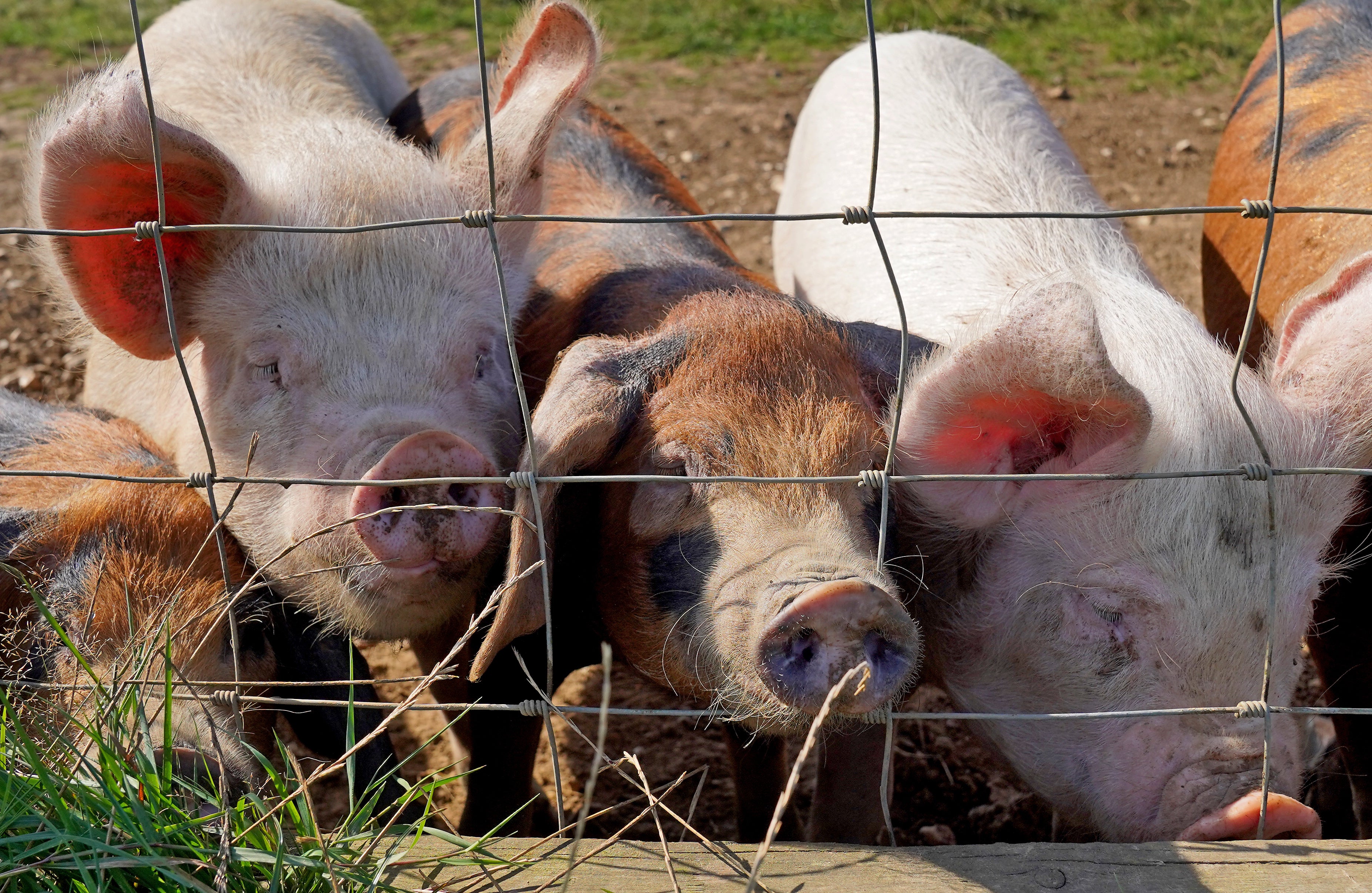Thousands more pigs to be culled on farms as emergency visa scheme for butchers comes too late
British farmers warn ‘well-intentioned’ measures from government risk causing ‘catastrophic collapse’ in price of pigs that will put them put of business

Government measures aimed at halting a cull of thousands of pigs have come too late and risk causing a "catastrophic collapse" in the price of pork that would put British farmers out of business, an industry body has warned.
The National Pig Association said thousands more animals are likely to be culled on farms despite an emergency visa scheme unveiled last month to bring in 800 foreign butchers. The butchers are not now expected to be at work until some time in January.
More than 14,000 pigs are estimated to have already been culled due to an acute shortage of skilled labour in the UK after Brexit, according to the NPA.
The shortage has forced desperate farmers to sell pork at well below its normal market value, figures from the NPA show. Pig farmers are being squeezed further by surging costs for energy and food.
A key industry benchmark known as the Standard Pig Price (SPP) is expected to sink to as low as £1.14 per kg - well below the average cost of production which is £1.80 per kg.
The market is also being flooded by cheap meat from Germany which has lost its main export market, China, which is closed due to outbreaks of African swine flu.
Farmers are now hoping that they can “hang on” and stay in business until the Spring when it is hoped the price of pork will begin to recover.
Many pig farmers are currently in an "extremely precarious" position, said Lizzie Wilson of the NPA.
"Processors who are looking to get through some of the backlog on farms are offering to take what we call 'distressed loads'. That means if farmers are absolutely desperate to get rid of some pigs they can send them in and they are only paid, say 70p a kilo per pig.
"That is then fed into our pricing mechanism and it crashes the average pig price.
“There is no sign of improvement,” Ms Wilson said. “The cost of production isn't going to drop any time soon and the pig price is just continually dropping.
"Some processors tell us they aren't even going to start clearing the backlog until spring so there is no real respite. We just hope that the majority of farmers can hang on."
According to the NPA, farmers lost an average of £25 per in the first six months of 2021, meaning a total loss of £130m for the industry. The second half of the year is expected to be at least as bad.
The industry has already shrunk dramatically this year, with the number of breeding sows falling by 27,500, or 8 per cent of the pre-Covid total.
NPA chairman Rob Mutimer has written to George Eustice, the environment secretary, warning that the emergency measures he has implemented could further damage struggling producers by causing a “catastrophic collapse” in pig prices.
Mr Eustice committed to funding a scheme to store partially butchered pigs to encourage abattoirs to start processing meat and help alleviate the backlog on farms.
But the scheme has been changed since it was announced and will now pay for the storage of fully processed joints of meat. Pig farmers say this means that meat processors are not immediately taking advantage the government-funded scheme.
It may not solve the immediate problem of a backlog of pigs on farms because abattoirs plan to wait and use the storage space next year to smooth out supplies, the NPA said.
Instead of partially processing thousands of animals now they are waiting until the butchers on temporary visas have arrived in the UK in January when they plan to fill the subsidised storage units with fully processed joints of meat.
“This will enable them to use the resource to de-bone product and place it into storage until summer 2022 when there is expected to be a drop in supply,” said Mr Mutimer.
It came as poultry farmers warned that their industry would shrink by around 15 per cent in the UK unless the government commits to allowing in thousands of temporary workers from abroad each year.
A one-off temporary scheme for up to 5,500 poultry workers was hailed this week as key to allowing British farms to supply enough turkeys for Christmas. But farmers say they can’t plan for the future unless the scheme is available permanently.
Fruit, vegetable and flower growers have all said that they are already cutting production for next year because they can't be sure they will have enough labour to pick their crops.
The National Farmers' Union (NFU) has said that they have been forced to throw away an “unprecedented” amount of crops this year due to a lack of available staff.
Join our commenting forum
Join thought-provoking conversations, follow other Independent readers and see their replies
0Comments